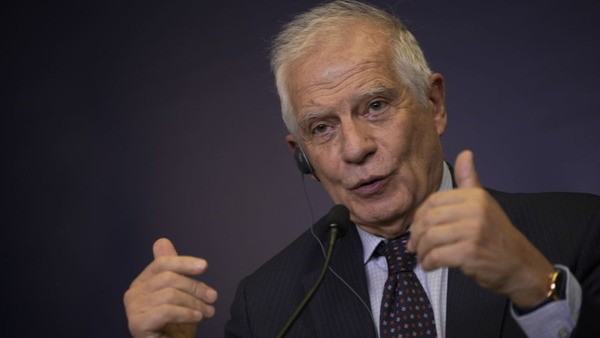Iran’s Plan to Strike Back Against the U.S.
Iran’s Military Preparations Following U.S. Attacks
Loading...

The EU's foreign policy chief has emphasized the necessity of ruling out any potential for military escalation concerning the self-governing island.
The EU's foreign policy chief, Josep Borrell, has emphasized the need for firmness in preventing any potential military conflict over Taiwan, which the EU regards as part of "one single China." Tensions surrounding the self-governing island, viewed by Beijing as an integral part of China, have heightened as the US maintains unofficial relations with Taiwan and provides it with defensive weaponry.
Speaking to Foreign Policy magazine during a visit to California to meet with tech leaders and state officials, Borrell discussed various topics, including tech regulation, EU-US relations, China, and geopolitical tensions, as well as the EU's stance on Taiwan and the prospect of military conflict.
"We continue to advocate for reducing tensions, respecting the status quo, and eliminating any possibility of a military resolution to the issue," Borrell stated. "Our steadfast stance is that we do not recognize Taiwan's statehood, and we will not do so. Taiwan is considered part of one single China. Consequently, we will engage in economic and cultural relations with Taiwan without acknowledging its statehood."
He emphasized the EU's call for all nations to recognize that there is no military solution to the Taiwan issue. Borrell has consistently highlighted the economic significance of Taiwan for the EU, particularly its crucial role in advanced semiconductor production.
In April 2023, Borrell proposed that European navies should conduct patrols in the disputed Taiwan Strait to demonstrate Europe's commitment to freedom of navigation. This suggestion followed Chinese military maneuvers around Taiwan, including simulated targeted strikes and a blockade of the island after a meeting between Taiwanese President Tsai Ing-wen and former US House Speaker Kevin McCarthy.
Taiwan served as the last refuge for nationalist forces during the Chinese civil war of the 1940s and has since maintained de facto independence from Beijing while aligning with Washington.
Under the 'One China' policy, central to Beijing's approach to Taiwan, China seeks the peaceful reunification of the island and aims to prevent any declaration of sovereignty, with the threat of military action if necessary. Beijing insists that Taiwan's status is a domestic matter and urges foreign governments not to interfere. Chinese officials have criticized Washington for repeatedly expressing support for Taiwan and finalizing defense agreements with the island's military.
In a recent development, the US approved a multibillion-dollar foreign aid package, with over $8 billion designated for Taiwan to counter the influence of communist China and ensure regional deterrence.
Iran’s Military Preparations Following U.S. Attacks
Troops remain in five strategic locations, raising fears of renewed tensions and long-term occupation.
Opposition forces have taken control of the capital after a significant offensive. Here is how it unravelled.
